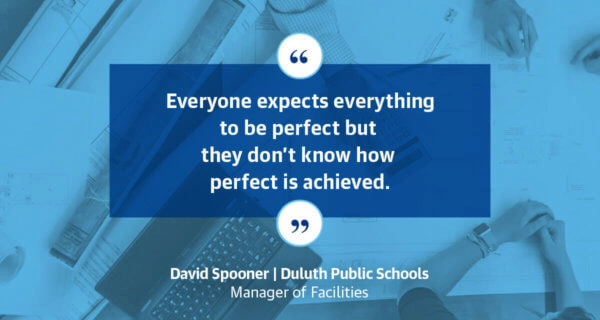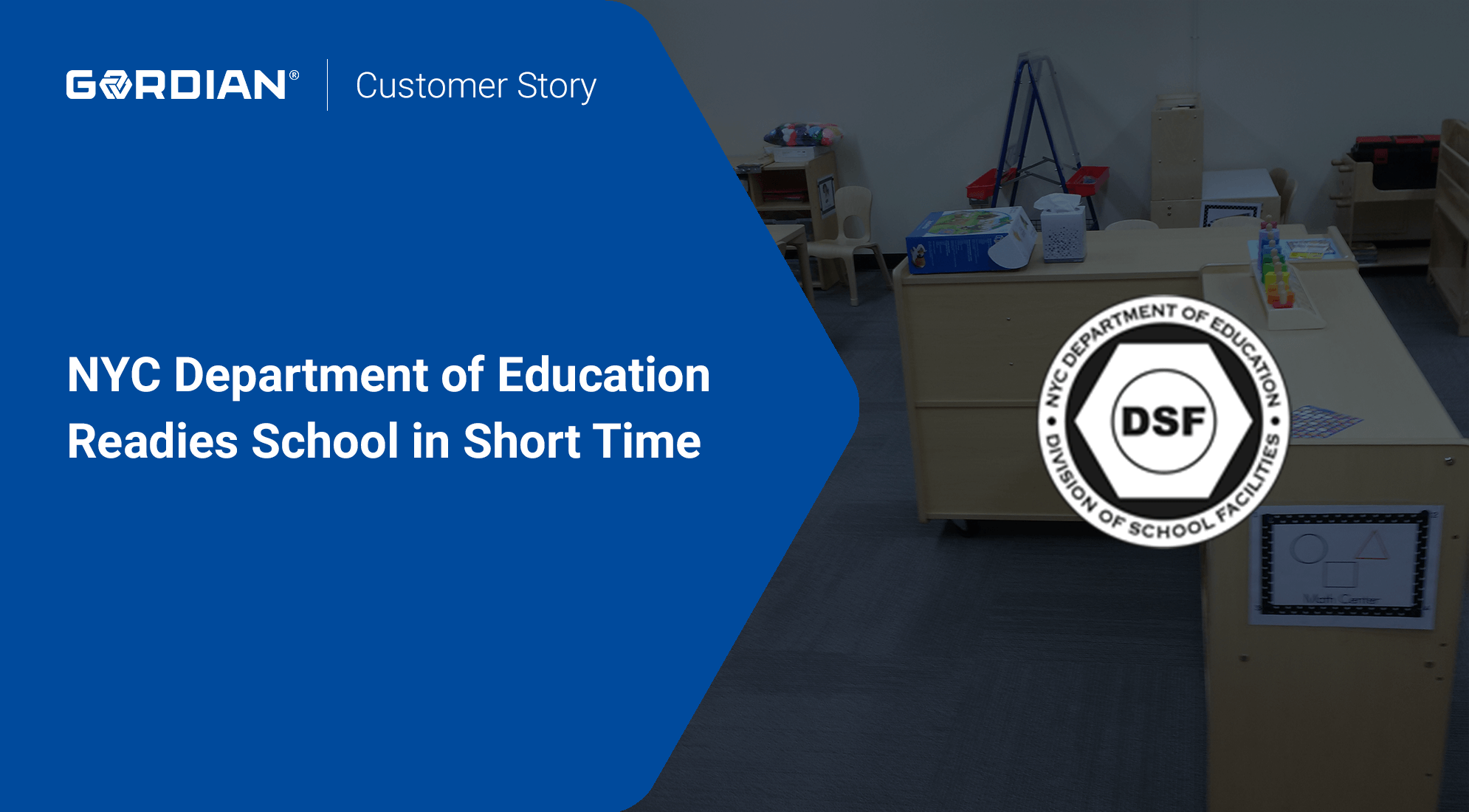Key Takeaways – Facilities Maintenance: Failure to Plan Is Planning to Fail
March 9, 2023
David Spooner, Manager of Facilities for Duluth Public Schools and Dwayne Pierre-Antoine, Gordian Regional Director, co-presented “Facilities Maintenance: Failure to Plan Is Planning to Fail,” a webinar hosted in partnership with Facility Executive. David and Dwayne explored how to implement a plan for securing facilities maintenance funding, discussed the importance of communicating a clear need for financial investment in asset management and told the story of how Gordian’s ezIQC® solution increased collaboration on a renovation project. Here are few key takeaways from this instructive webinar.
1. Reactive maintenance is on the rise.
As budgets and maintenance staff are stretched thin, deferred maintenance backlogs grow. This leads to an increased risk of system failure, causing maintenance teams to spend a disproportionate amount of time performing reactive maintenance that hemorrhages resources from preventive maintenance programs.
2. Making the case for facilities funding requires clear communication.
Funding is the top challenge of facilities management, particularly in the public sector. A lot of the work performed by facilities and maintenance staff is unseen and that, according to David Spooner, contributes to a lack of understanding among decision makers.
“We work above ceilings, behind walls, in basements and in crawl spaces at hours when other people are not there. This hidden work is in some ways a detriment because people don’t see all the work that we do to make the buildings look how they look and operate how they do. Everyone expects everything to be perfect but they don’t know how perfect is achieved.”
David uses compelling data and metrics to demonstrate the impact of every budget decision and to motivate decision makers to invest in facilities.
He suggests using a maintenance management software system for all equipment, whether or not that equipment requires ongoing maintenance.
3. Gordian’s ezIQC solution increases collaboration and transparency.
After the successful completion of a renovation project at Duluth Public Schools under a tight timeline, David and the team involved held a “lessons learned” meeting. The team agreed that using ezIQC, a job order contract available through cooperative purchasing networks, fostered transparency and collaboration amongst the architect, the contractor and the key stakeholders.
In fact, the principle architect on the project, Ryan Erspamer, said, “I have never seen this much collaboration or willingness to offer suggestion/help on a project, ever.”
Bonus Takeaway: Facilities pros are people too.
Given David’s management experience, attendees asked him for advice on maintaining high morale for stressed maintenance staffs. His response was simple and straightforward: Say “Thank you.”
Share this:






